Before going to Bulgaria, I have to admit I didn’t know much about this country. Although I travel a lot in Europe, and even if I did an Erasmus in Romania, the neighboring country, a few years ago, well, my only knowledge about it was the name of its capital city Sofia, something about bulgarian yogourt that is supposed to be famous and the fact that Serbians like to go there on holidays because it has access to the Black Sea and it’s cheaper than Greece. So, yes, not much! Luckily, last February, I had the chance to go there for an internship as a French teacher in a bulgarian high school. This experience was completely different than what I was expecting – thank you Covid-19 ! – but still, after 4 months living in Ruse, the « little Vienna », I could discover a little bit of Bulgarian lifestyle. In this article I would like to share now 5 things you probably didn’t know about Bulgaria and hopefully give you the will to visit this beautiful country as soon as possible.
1) The cyrillic alphabet was born in Bulgaria
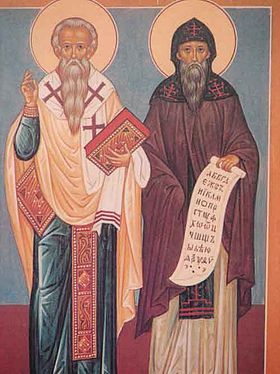
Do you remember the cyrillic alphabet? It’s the alphabet we used sometimes for our blogs when we were young teenagers who wanted to look cool using strange letters. I remember for example people (not me) using the mirrored « R » or « N » and come up with this kind of title : WеLс0мэээ oи му вLoggg му FяiеиD. I guess this must be strange for cyrillic users, but for french children, your alphabet is just a different typo. Anyway, thing is, the cyrillic alphabet is very often connected to Russia, as it is the biggest country of the slavic world. However, this is not a complete picture, as many other countries use the cyrillic alphabet, for example Serbia (the latin alphabet is also common), Belarus, Ukraine, Uzbekistan, Tajikistan, Kazakhstan (until 2025 – after that they go back to latin) and obviously Bulgaria. Bulgarians are very proud because the alphabet was created on their very own land by religious scholar… Can you guess his name? Well, yes, Saint Cyril (also known as « Constantin the Philosopher ») was definitely involved. During the 9th century, he created with his brother Method (perfect name for this kind of task) the glagolitic alphabet which then became the cyrillic alphabet thanks to the work of their students. Thanks to this invention they could translate the Bible in old-Slavic, more or less common language in the region, which was very useful to evangelize Slavic people.
2) French music should thanks Bulgaria
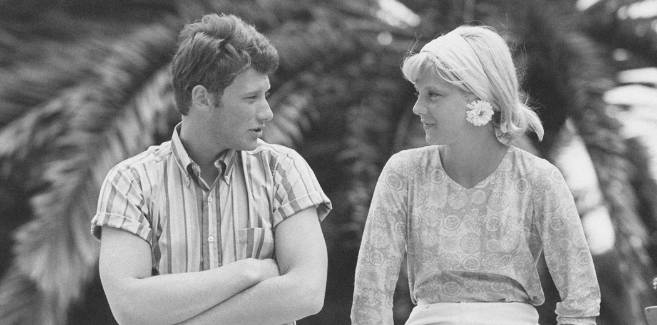
Everybody in France knows who Sylvie Vartan is. She was a big star in the 60s and 70s, especially during the « période Yéyé » (no way I can translate this). She then married late Johnny Hallyday who was the biggest commercial rockstar of our country for 50 years (he was so popular there was a national tribute ceremony when he died a few years ago and some people thought he should be buried in the Pantheon next to Victor Hugo, Simone Veil and Voltaire) and Sylvie sang a few summer hits with her husband before they decided to divorce. Anyway. What people usually don’t know is, that Sylvie Vartan (in cyrillic alphabet: Силви Вартан) was born in Iskretz, a Bulgarian village. She then emigrated with her parents to France because life under communism was getting more and more difficult. But besides Sylvie Vartan, Bulgaria also offered Jacques Canetti (full name: Nissim Jacques Canetti). Jacques was born in Ruse but raised in the UK before coming to France in 1926 to study. But who is Jacques Canetti? Well, no one special really, just the music producer who gave a first chance to Edith Piaf, Charles Trenet, Jacques Brel, Serge Gainsbourg… Oh and his brother, Elias Canetti, also born in Ruse, is a British/Bulgarian Nobel Prize (who wrote in German by the way). The last brother, Georges, became a renowned French doctor working on tuberculosis.
3) Bulgaria was communist but wasn’t part of the USSR
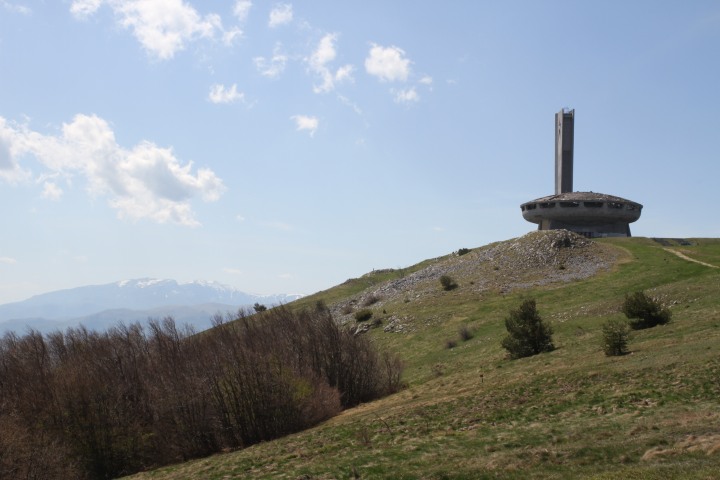
Bulgaria was a communist country from 1946 to 1990 but it was never a part of the USSR (just like Romania, Albania or late-Yougoslavia). Before being communist, Bulgaria was a kingdom (1908-1946); and before being a kingdom, it was part of the Ottoman Empire (for like 4 centuries or something so quite a lonnnng time). Anyway. Long story short, during the Second World War Bulgaria was friend with Germany but around 1944 the communist partisans fought with the fascists guys on Buzludzha peak and later on in 1946 during the legislative elections Bulgaria became communist instead and best friend with the USSR. Even though Bulgaria stayed independant, it was so close to the USSR that it was sometimes considered as its USSR 16th Republic. Political opposition was not allowed, economy was planned thanks to a five-year plan, there was a collectivisation of lands, and of course huge monuments to the glory of the party (see again, Buzludzha). So, not USSR, but very much USSR-style.
4) Bulgarian heritage is extremely rich
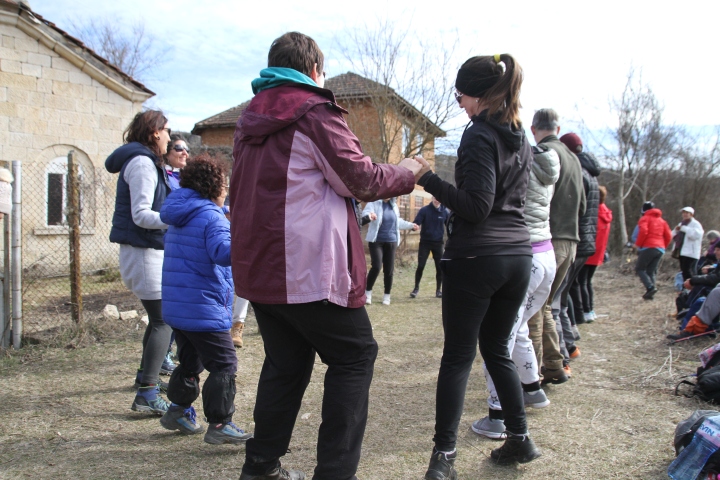
I don’t even know where to start. Bulgaria is the only country in Europe that hasn’t changed its name since it was established around the 7th century before Christ. The oldest gold treasure in the world was found there. The Thrace Empire occupied most of the region and there is still a lot of tombs and ruins from this time a little bit everywhere. Unfortunately they are not always very well maintained and it seems that the government is not so keen on protecting its material heritage but rather making illegal money out of it (our letting other people do so). Immaterial heritage is also quite amazing. As Bulgaria is still quite rural, many traditions are still very much alive. It is very common to see people dancing in huge circles traditional dances or singing polyphonic songs. Even if the « real folk » is step by step replaced by « modern folk », people are attached and very proud of their traditions. As for food, well, you won’t be disappointed.
5) There is something for every taste in Bulgaria
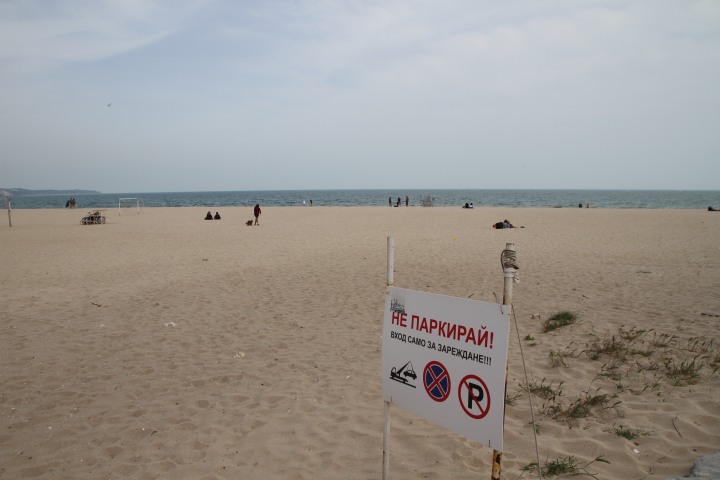
You will find all kind of landscapes and activities in Bulgaria. You enjoy sunbathing for hours by the sea? Then check the the coast of the Black Sea by visiting Varna, Bourgas, or one of the numerous small cities and villages in between. You prefer skiing and the mountain vibe? Well, lucky you, Bulgaria has a lot of high peaks to visit with the Balkans mountain, the Rhodopes mountains and even Mount Vitosha right outside Sofia its capital city. Do you like old fortress, castles, ruins, and original architecture? Take a tour to Veliko Tarnovo. Want to fall in love with the Danube river? Well, the city of Ruse is perfect for you, as well as the whole Ruse region. More interested by modern culture? Take your chance in Plovdiv, European capital of culture 2019. Whether you like art, sport, architecture, history or nature, you can find happiness in Bulgaria. So start planning your trip!
Did you expect Bulgaria to be so rich? 🙂 Which place do you want to visit the most?



Dear Ingrid, thank you for these 5 things many foreigners don’t know. There are many other Bulgarians with contributions to world science and art but I hope this publication will challenge people to learn more about Bulgaria and visit it. I was happy to show you a little part of Ruse region.
J’aimeJ’aime
Thank you for your comment Georgi, you are right, there would be so much more to tell about Bulgaria and Bulgarians! 🙂
J’aimeJ’aime
C’est passionnant de te lire, Ingrid! Même si on connaît le sujet, ta façon de présenter les choses est d’une telle finesse sincère qu’on reste jusqu’au bout totalement séduit par ton récit !
Merci pour ce plaisir partagé !
J’aimeJ’aime
Merci pour ce joli commentaire qui me fait fort plaisir ! 😍
J’aimeJ’aime
Dear Ingrid,
It is a pleasure to meet you.
You are a very inquisitive person and an intelligent young woman! 🙂
J’aimeJ’aime
Thank you Silvia! It was a pleasure to meet you too and learn more about Bulgarian language 😊
J’aimeJ’aime